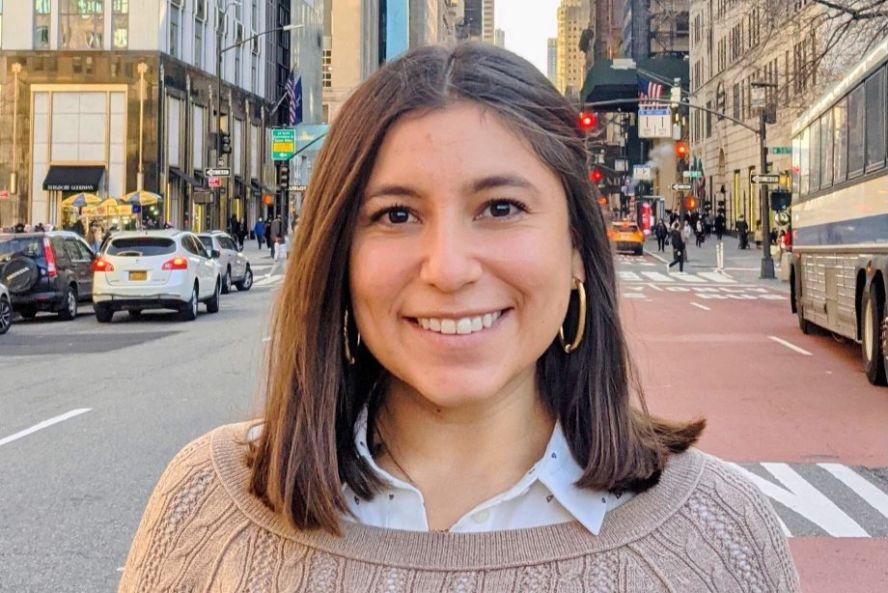-

Hear from Professor Monica Toft
Learn how Professor Monica Toft is shaping the study of global affairs and diplomacy at Fletcher.
Hear from Prof. Toft -

Explore Fletcher academics in action
Fletcher Features offers insights, innovation, stories and expertise by scholars.
Get global insights -
Get application tips right from the source
Learn tips, tricks, and behind-the-scenes insights on applying to Fletcher from our admissions counselors.
Hear from Admissions -

Research that the world is talking about
Stay up to date on the latest research, innovation, and thought leadership from our newsroom.
Stay informed -
Meet Fletcherites and their stories
Get to know our vibrant community through news stories highlighting faculty, students, and alumni.
Meet Fletcherites -

Forge your future after Fletcher
Watch to see how Fletcher prepares global thinkers for success across industries.
See the impact -

Global insights and expertise, on demand.
Need a global affairs expert for a timely and insightful take? Fletcher faculty are available for media inquiries.
Get in Touch
Student Profile: Maria Paola Silva
Fletcher student and women’s rights activist Maria Paola Silva is currently pursuing a MALD degree with a concentration in Gender and Intersectional Analysis and International Security. Read more about her interest in driving conversations and action arou

Can you name a woman, from history or present-day, who most inspires you?
That’s a tough question because there are so many, but I’d have to say Policarpa Salavarrieta, a revolutionary who fought for independence from the Spanish Empire in the early 1800s. Little is known of her outside of my home country of Colombia, which I why I’d like to share the story of this remarkable woman.
Policarpa was a young woman, employed as a seamstress in the homes of Spanish military leaders, who heard and passed along important political information that helped strengthen the resistance movement. Eventually she was discovered, jailed, tried and executed but not before she delivered these powerful last words: “Although I am a woman and young, I have more than enough courage to suffer this death and a thousand more!”
As one of approximately 50 female agents executed as part of the resistance movement, she earned a special place in the rich history of Colombia but the point of my retelling is that she is an inspirational figure and should be a considered a heroine everywhere in the world.
For anyone interested in learning more about this brave, determined, rebellious woman, I recommend the book Good Night Stories for Rebel Girls by Elena Favilli and Francesca Cavallo.
You have experience working for social justice on local and national levels. What would you highlight from your work on gender issues?
Before I came to Fletcher, I worked for the City Council in Bogota and there, I identified a critical need for City Council members to be better educated on gender topics. This was based on my observations and concern that issues facing women were not well understood, and that a training initiative would be valuable in terms of a more balanced representation of issues affecting the constituency.
I developed the training program and toolkit hand-in-hand with UN Women and City Council members. These efforts were specifically geared to elected officials and their teams and explored many aspects of gender, such as gender mainstreaming political debates, gendering budgets on a local level and knowledge about gender to an appropriate political control to the administration. Nearly 200 people were trained over three sessions, all online because of COVID restrictions.
I’m very proud of the impact it has made and how it has opened peoples’ eyes to existing gender bias in their own thinking and on a broader level as well. The Bogota City Council Toolkit was so well-received that it is now an ongoing, mandated program. Plus, the group UN Women supported its creation which was very exciting and a wonderful endorsement.
Of the many issues and obstacles facing women, care seems to be at the top of the list. Why?
Countries like Denmark understand how care should be responsibly administered on a national basis. I think on a global level we can learn a lot from their model about why care has to be paid, and why care is something that must be tackled from every sector.
There was a lot of chaos in 2020, between pandemic quarantines, fear of increases in COVID-19 cases, and uncertainty about the economic future and our health. For women, the situational impact was even more dramatic: unemployment grew disproportionately, cases of gender-based violence increased, paid domestic work decreased, and unpaid domestic and care work increased.
Women not only had to worry about surviving a crisis, but also, if they were lucky enough not to lose their jobs, they faced a triple working day: domestic work within the home, care work with people who need support and work for which they receive income.
As the Italian scholar Silvia Federici once stated, “That thing that you call love, is unpaid care work.”

